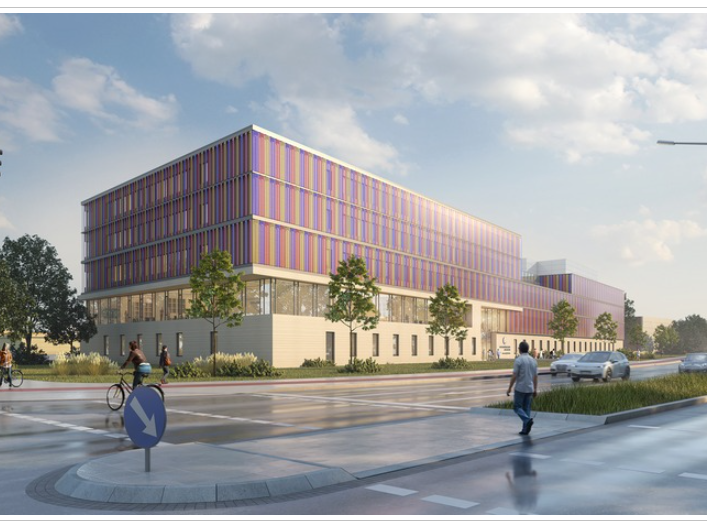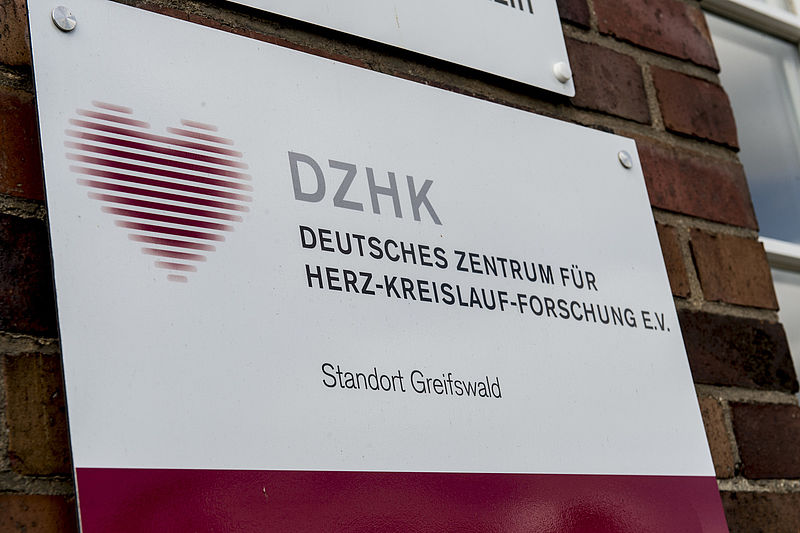The building, which is being jointly funded by the federal and state governments, is scheduled to be completed by the end of 2026, with work having already begun in October 2022. With a floor space of almost 7,500 m2, the research building will provide space for around 380 employees and allow daily examination of up to 173 people.
In addition to the Minister for Science, Bettina Martin, other guests from the world of politics and representatives of the Greifswald University Hospital attended the laying of the foundation stone. Prof. Dr. Wolfgang Hoffmann, Director of the Institute of Community Medicine and Principal Investigator at the DZHK, was also present when a time capsule was inserted into the foundation stone with hammer blows and then cemented in place.
Science Minister Bettina Martin said: "With its excellent work over the past 20 years, the Institute for Community Medicine has achieved a unique position and a high reputation both nationally and internationally. The new William B. Kannel Centre will take this important research to an even higher level and position it strongly for the future. Located on the central campus of the Greifswald University Hospital, in close proximity to the institutes and clinics, the building brings together the various disciplines in one place. This will enormously improve both the conditions for research and the transfer to clinical and therapeutic practice.
Source: Press release of the Greifswald University Hospital
Foundation stone laid for new research building at DZHK Greifswald site


